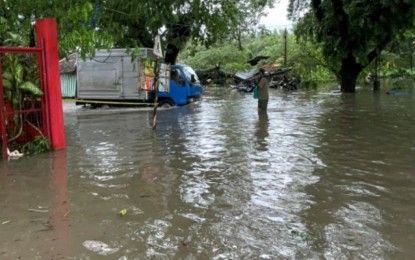In a startling revelation, Leptospirosis cases in Bacolod City have surged by a staggering 100 percent from January to the middle of December this year compared to the same period in 2022. The alarming statistics, as reported by the City Health Office (CHO), highlight a concerning trend that demands immediate attention. Amidst continuing exposure to risk factors, especially in densely populated villages, the need for heightened public awareness and citywide action has never been more urgent.
The CHO records released counted a grim picture with 88 reported cases, including 16 tragic deaths, since the beginning of the year—double the number from the previous year. The most recent fatality, a 38-year-old construction worker, underscores the severity of the situation. Dr. Grace Tan, the head of CHO's Environment Sanitation Division, pointed out that delayed health-seeking behavior and denial of leptospirosis infection remain significant contributors to complications and death.
Between 70 and 80 percent of the reported cases had a history of exposure or contact with contaminated water or ground. Dr. Tan emphasized that the last patient who succumbed to the illness was exposed to sewerage work, underscoring the need for targeted interventions in high-risk occupations. Leptospirosis is a bacterial infection primarily caused by the leptospira spirochetes bacteria, contracted through exposure to water or soil contaminated by the urine of infected animals, particularly rats.
The impact of the leptospirosis surge is not evenly distributed across the city. Certain barangays, such as 14, Banago, and Pahanocoy, reported two deaths each, while others, including Barangays 6, 23, Taculing, Handumanan, Villamonte, Bata, Granada, Singcang-Airport, Tangub, and Alijis recorded one death each. This non-uniform distribution calls for targeted efforts in specific geographical hotspots to curb the spread of the disease.
In its advisory, the CHO urges the public to take leptospirosis prophylaxis promptly following exposure to contaminated water, ground, or food. Immediate prescription consultation with the nearest health center or private physician is recommended. Emphasizing the role of sanitation inspectors, the CHO encourages close coordination with the city government to address issues such as floods, sewerage siphoning, and garbage management, which contribute to the proliferation of leptospirosis.
As Bacolod City grapples with this alarming increase in leptospirosis cases, a united front is needed to combat this public health crisis. Increased public awareness, timely medical intervention, and targeted citywide initiatives are crucial to mitigating the risk factors contributing to the surge. Individuals, communities, and authorities must join forces to tackle leptospirosis head-on, ensuring the health and well-being of our citizens.
PHOTO CAPTION: The Bacolod City Health Office said exposure to floodwaters contaminated by the urine of infected animals poses the risk of leptospirosis infection among humans, especially those with cuts, wounds, or abrasions on their skin.
#OpinYonPanay #Leptospirosis #Bacolod #OpinYon #WeTakeAStand
